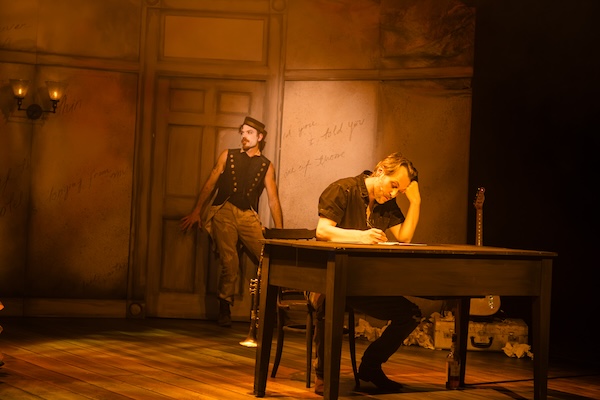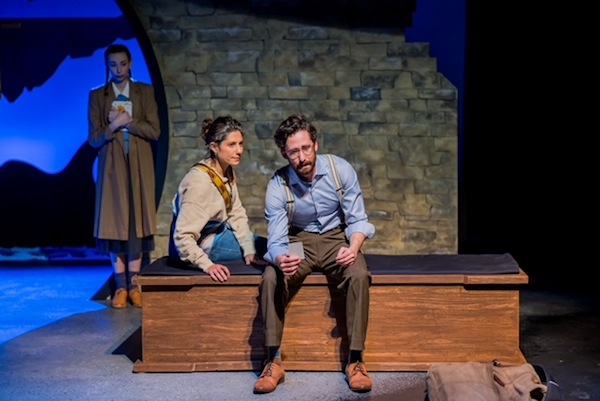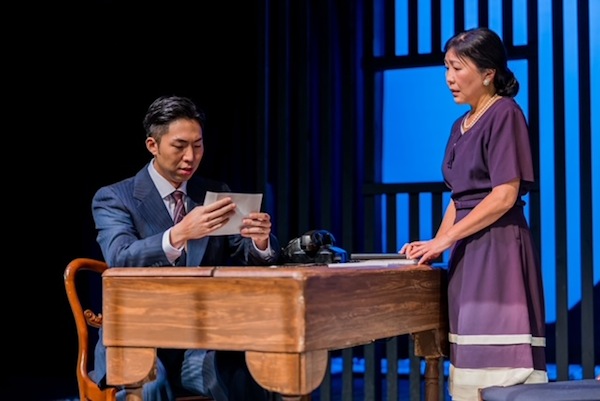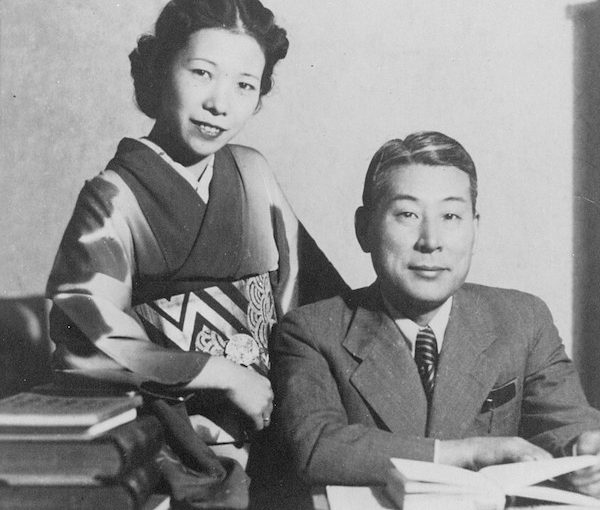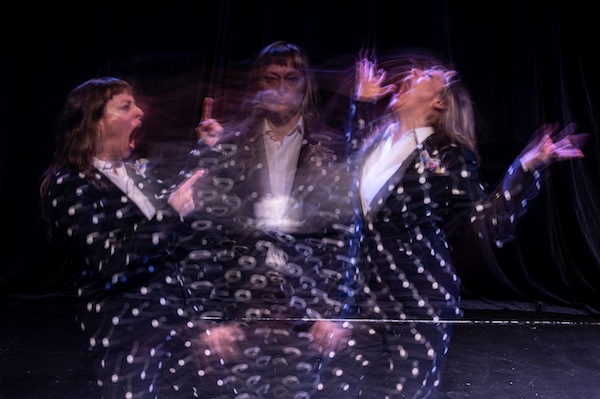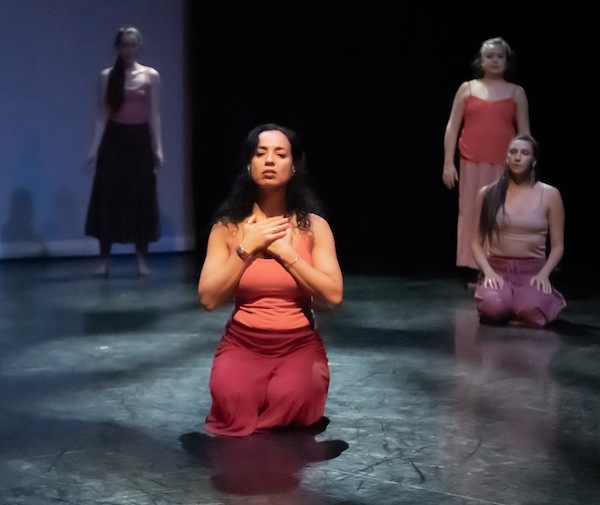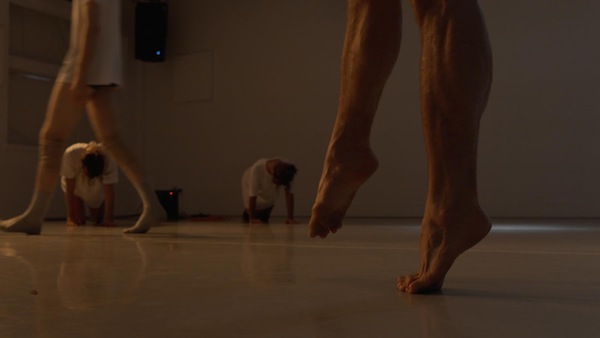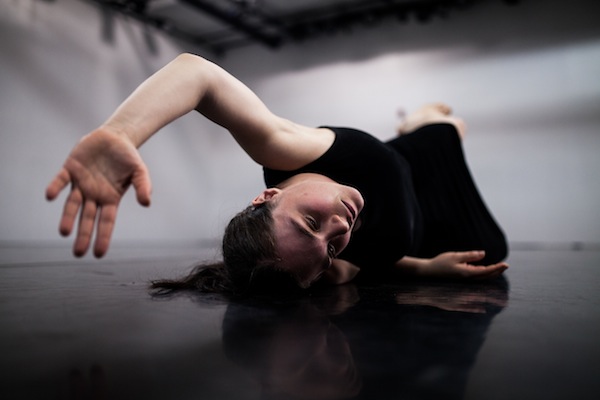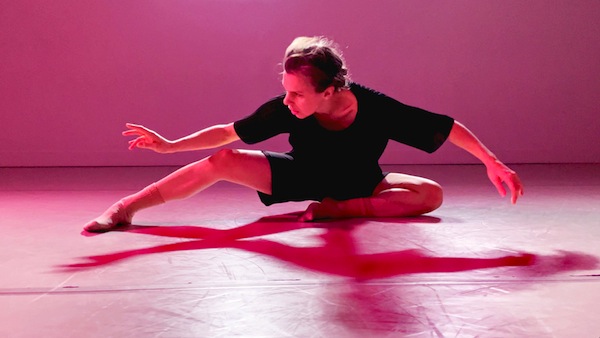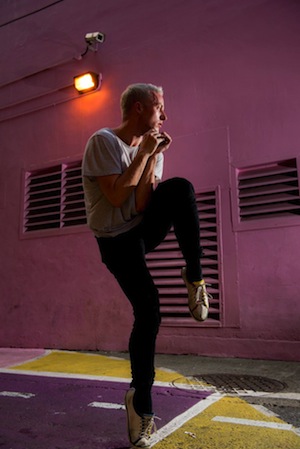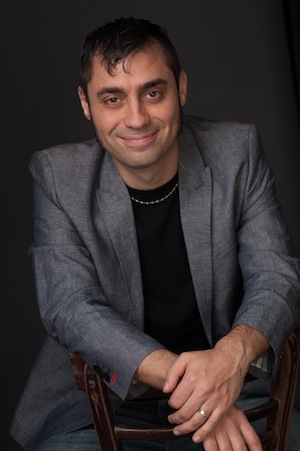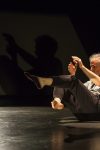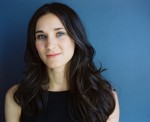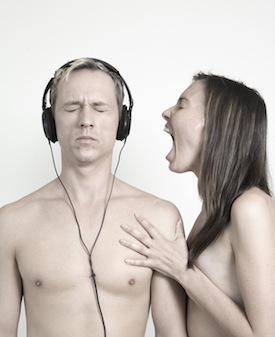Jack Garton, playing a Jokeresque bellhop, manipulates the memories and thoughts of the Writer, played by Adrian Glynn McMorran. (Sarah Race Photography)
In Paper Thin Hotel, Leonard Cohen writes, “It is written on the walls of this hotel, you go to heaven once you’ve been to hell.” Heaven is where you will be if you catch Steve Charles and Tracey Power’s 2024 iteration of their 2012 hit Chelsea Hotel, playing at the Firehall Arts Centre until March 3.
Chelsea Hotel is a loving tribute to Cohen and his poetry, which transcends time and space while touching on enduring universal topics – passion, loss, sex, religion and politics. Although Cohen has been dead for more than seven years, his music and lyrics live on and perhaps are more relevant than ever given the troubled state of our world.
I saw the world première of the show back in 2012 (jewishindependent.ca/oldsite/archives/feb12/archives12feb10-02.html) and did not think anything could make it better but, after a cross-country tour and 400 performances, like a fine wine, it has improved with age. Half of the original cast returns to reprise their roles and they, too, have only become better with time. Power does triple duty as she choreographs, acts and directs, while Charles is musical director/arranger and musician/actor.
The sung-through musical revolves around a tortured writer (Adrian Glynn McMorran) shuttered up in a shabby room in New York’s Chelsea Hotel trying to forget his past so that he can be creative again. The show opens with him outstretched on a bed towering with crumpled paper, a metaphor for his cluttered mind. Each time he writes something down and throws it away, we feel his existential angst as he searches for inspiration from his life’s memories. Five actors, playing multiple characters, move in and out of his various visions, reminding him of his past romantic entanglements and indiscretions through songs like “Suzanne,” “Take this Waltz,” “First We Take Manhattan,” “Tower of Song,” “Dance Me to the End of Earth,” “Bird on a Wire” and, of course, “Hallelujah.”
All the scenes play out in the Writer’s mind – illusions in a carnival-like setting guided by a Jokeresque bellhop (a terrific Jack Garton) who pops in and out of the set as he manipulates the Writer’s memories and thoughts.
This truly ensemble production is a fusion of dance, music and theatre, with the multi-talented cast of six all triple threats – each capable of singing, dancing and playing the myriad instruments used in the show, ranging from the traditional – guitar, violin, keyboards and drums – to the more unconventional – banjo, ukulele, accordion and even a kazoo (showcased in the very erotic “I’m Your Man” number).
McMorran is sensational as the Writer. His vocals run the gamut from softly crooned ballads to frenetic rock ’n’ roll numbers. Power, Marlene Ginader and Michelle Bouey play the lovers and the muses, moving through the various vignettes in dreamlike, ethereal fashion. Ginader, in her blue raincoat, is touching in her portrayal of the jilted lover trying to get back into the Writer’s heart. Hovering quietly in the shadowy background, Charles switches effortlessly from instrument to instrument, until he emerges front and centre stage to sing a poignant “Famous Blue Raincoat.”
The staging is sublime. Kudos to set and costume designer Drew Facey for his fragile, paper-like set and simple costumes. John Webber’s mood lighting completes the surreal atmosphere.
As you unwrap the layers of this performance, so ably packaged by this wonderful cast, the pleasure only increases. There is so much to like in this production – don’t miss it.
As a bonus, on Feb. 23, the theatre is holding a special event, Endless Love, toasting the legacy of Cohen, which includes pre- and post-show receptions, cast mingling and, of course, the show. Tickets can be purchased at firehallartscentre.ca or by calling the box office at 604-689-0926.
Tova Kornfeld is a Vancouver freelance writer and lawyer.

